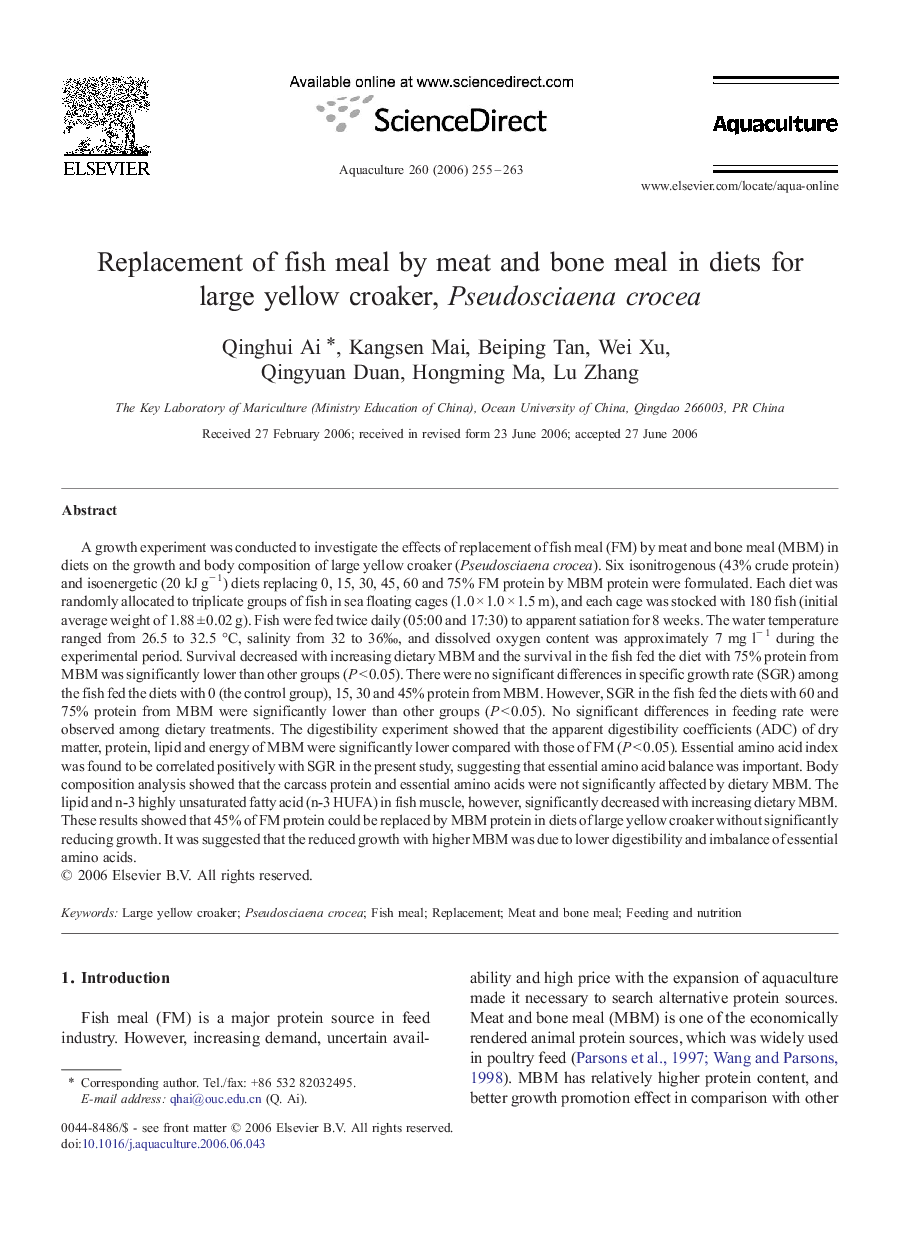| Article ID | Journal | Published Year | Pages | File Type |
|---|---|---|---|---|
| 2425675 | Aquaculture | 2006 | 9 Pages |
A growth experiment was conducted to investigate the effects of replacement of fish meal (FM) by meat and bone meal (MBM) in diets on the growth and body composition of large yellow croaker (Pseudosciaena crocea). Six isonitrogenous (43% crude protein) and isoenergetic (20 kJ g− 1) diets replacing 0, 15, 30, 45, 60 and 75% FM protein by MBM protein were formulated. Each diet was randomly allocated to triplicate groups of fish in sea floating cages (1.0 × 1.0 × 1.5 m), and each cage was stocked with 180 fish (initial average weight of 1.88 ± 0.02 g). Fish were fed twice daily (05:00 and 17:30) to apparent satiation for 8 weeks. The water temperature ranged from 26.5 to 32.5 °C, salinity from 32 to 36‰, and dissolved oxygen content was approximately 7 mg l− 1 during the experimental period. Survival decreased with increasing dietary MBM and the survival in the fish fed the diet with 75% protein from MBM was significantly lower than other groups (P < 0.05). There were no significant differences in specific growth rate (SGR) among the fish fed the diets with 0 (the control group), 15, 30 and 45% protein from MBM. However, SGR in the fish fed the diets with 60 and 75% protein from MBM were significantly lower than other groups (P < 0.05). No significant differences in feeding rate were observed among dietary treatments. The digestibility experiment showed that the apparent digestibility coefficients (ADC) of dry matter, protein, lipid and energy of MBM were significantly lower compared with those of FM (P < 0.05). Essential amino acid index was found to be correlated positively with SGR in the present study, suggesting that essential amino acid balance was important. Body composition analysis showed that the carcass protein and essential amino acids were not significantly affected by dietary MBM. The lipid and n-3 highly unsaturated fatty acid (n-3 HUFA) in fish muscle, however, significantly decreased with increasing dietary MBM. These results showed that 45% of FM protein could be replaced by MBM protein in diets of large yellow croaker without significantly reducing growth. It was suggested that the reduced growth with higher MBM was due to lower digestibility and imbalance of essential amino acids.
